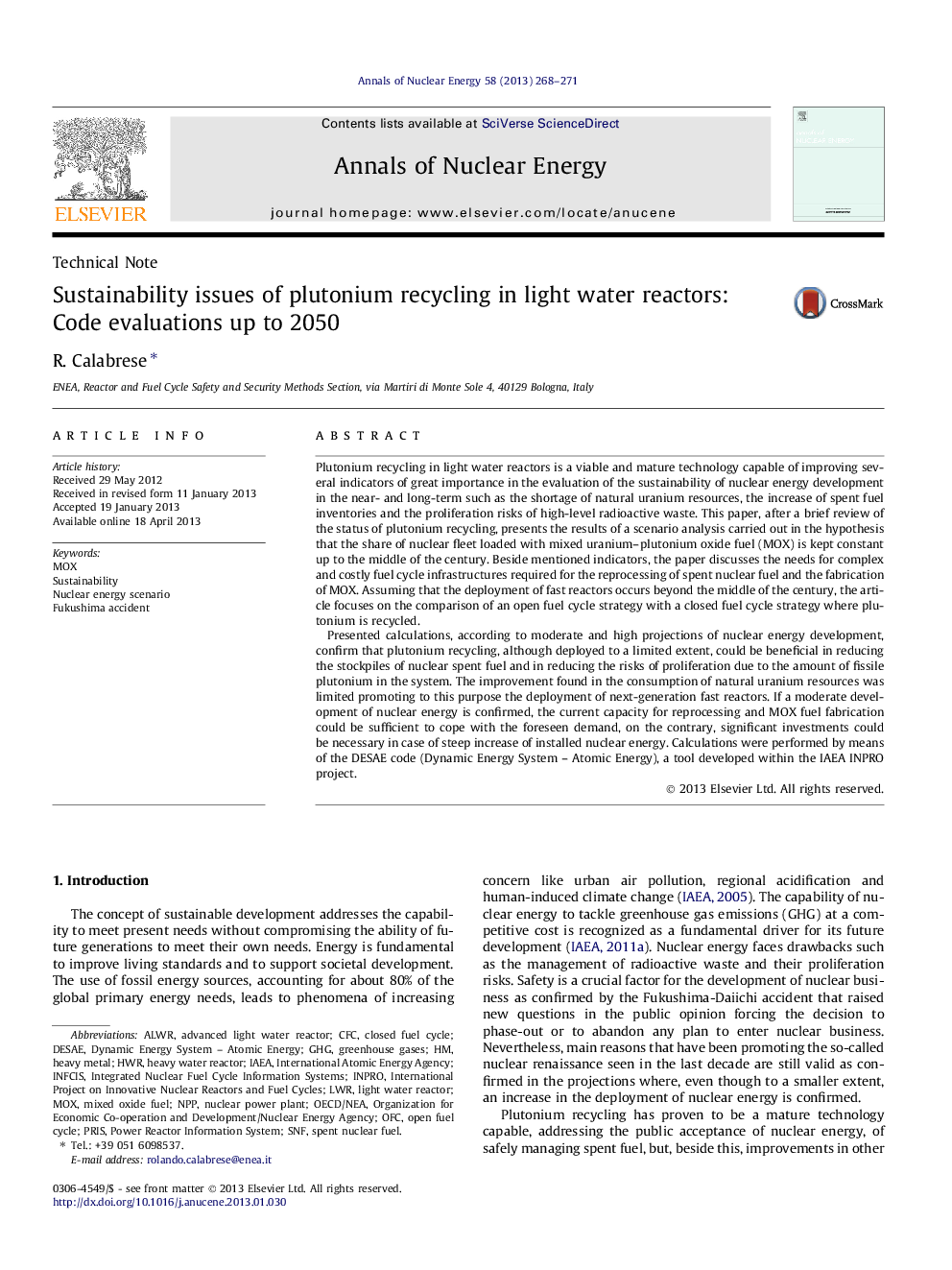| کد مقاله | کد نشریه | سال انتشار | مقاله انگلیسی | نسخه تمام متن |
|---|---|---|---|---|
| 1728619 | 1521140 | 2013 | 4 صفحه PDF | دانلود رایگان |

Plutonium recycling in light water reactors is a viable and mature technology capable of improving several indicators of great importance in the evaluation of the sustainability of nuclear energy development in the near- and long-term such as the shortage of natural uranium resources, the increase of spent fuel inventories and the proliferation risks of high-level radioactive waste. This paper, after a brief review of the status of plutonium recycling, presents the results of a scenario analysis carried out in the hypothesis that the share of nuclear fleet loaded with mixed uranium–plutonium oxide fuel (MOX) is kept constant up to the middle of the century. Beside mentioned indicators, the paper discusses the needs for complex and costly fuel cycle infrastructures required for the reprocessing of spent nuclear fuel and the fabrication of MOX. Assuming that the deployment of fast reactors occurs beyond the middle of the century, the article focuses on the comparison of an open fuel cycle strategy with a closed fuel cycle strategy where plutonium is recycled.Presented calculations, according to moderate and high projections of nuclear energy development, confirm that plutonium recycling, although deployed to a limited extent, could be beneficial in reducing the stockpiles of nuclear spent fuel and in reducing the risks of proliferation due to the amount of fissile plutonium in the system. The improvement found in the consumption of natural uranium resources was limited promoting to this purpose the deployment of next-generation fast reactors. If a moderate development of nuclear energy is confirmed, the current capacity for reprocessing and MOX fuel fabrication could be sufficient to cope with the foreseen demand, on the contrary, significant investments could be necessary in case of steep increase of installed nuclear energy. Calculations were performed by means of the DESAE code (Dynamic Energy System – Atomic Energy), a tool developed within the IAEA INPRO project.
► The article presents a scenario for plutonium recycling up to 2050.
► Presented results deal with moderate and high projections of nuclear energy.
► For high projections, the use of MOX fuel requires additional cycle infrastructures.
► Plutonium recycling reduces the amount of spent fuel and improves non-proliferation.
Journal: Annals of Nuclear Energy - Volume 58, August 2013, Pages 268–271